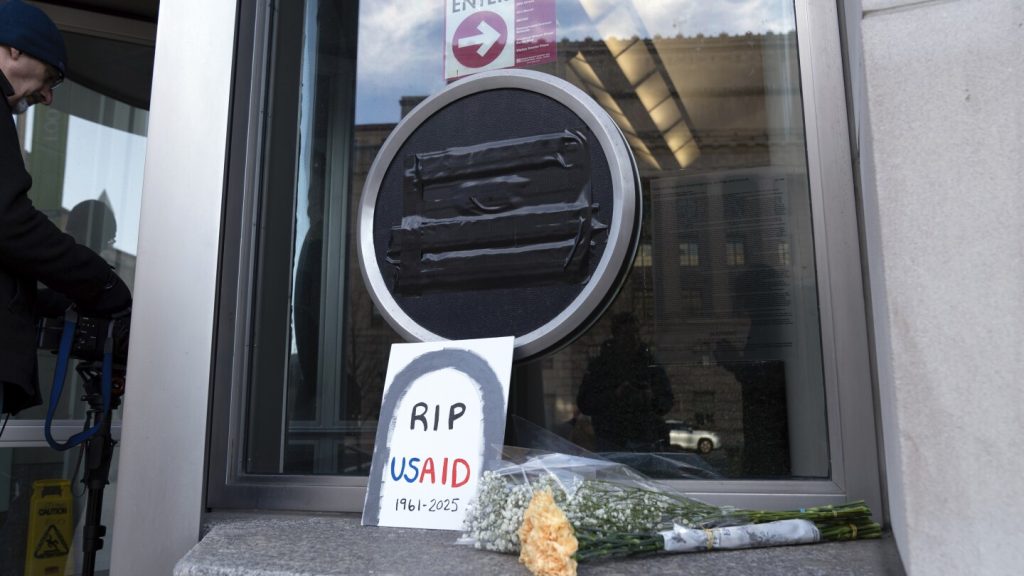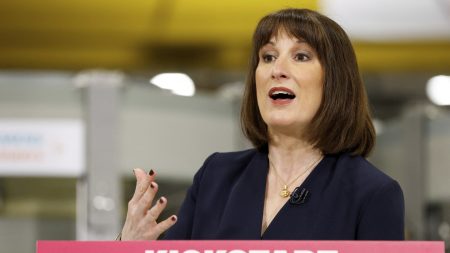White House Fires USAID Inspector General
On Tuesday, the White House dismissed the inspector general for the U.S. Agency for International Development (USAID), Paul Martin, without providing any official reason. Martin’s office had just issued a stark warning the day before, stating that the Trump administration’s actions, including a freeze on all foreign assistance and cuts to USAID staff, had rendered the oversight of $8.2 billion in unspent humanitarian funds "largely nonoperational." Inspectors general are typically independent watchdogs within government agencies, tasked with identifying and addressing issues of waste, fraud, and abuse. Martin’s firing is the latest in a series of purges by the Trump administration, which has previously removed more than a dozen inspectors general. The decision to terminate Martin’s position, as reported by CNN, further strains the already tenuous oversight mechanisms within USAID, raising concerns about the transparency and accountability of the agency’s operations.
USAID’s Overseas Impact at Risk
The dismantling of USAID has far-reaching consequences beyond just the agency’s internal operations. Martin’s office warned that the agency’s ability to ensure that none of the humanitarian funding falls into the hands of violent extremist groups or goes astray in conflict zones is now severely compromised. This is a critical concern given the vast sums of money involved and the sensitive nature of the regions where USAID operates. The administration’s actions not only jeopardize the success of ongoing humanitarian programs but also put vulnerable populations at risk. American businesses, in particular, are feeling the brunt of these changes, with significant financial losses and operational disruptions. The lawsuit filed on Tuesday underscores the gravity of the situation, detailing the dire consequences of the freeze on foreign assistance and the subsequent impact on global health and welfare programs.
Legal Challenges Mount
The lawsuit, filed in U.S. District Court in Washington, is one of several legal actions taken against the Trump administration over its handling of USAID. The plaintiffs include a consortium of 170 small U.S. businesses, major suppliers, the American Jewish group HIAS, which aids displaced people abroad, the American Bar Association, and other organizations. They allege that the administration’s actions are unlawful and have caused significant harm. For Chemonics International, a prominent USAID partner, the funding freeze has resulted in $103 million in unpaid invoices and nearly $500 million worth of medication, food, and other vital supplies stuck in the supply chain or ports. The lawsuit asserts that the administration has no authority to block programs and funding mandated by Congress without proper approval, highlighting a potential constitutional conflict.
Human Cost of the Freeze
The human cost of the Trump administration’s actions on USAID is profound. The lawsuit reveals that the delays in delivering health commodities alone could result in up to 566,000 deaths, including 215,000 pediatric deaths, from HIV/AIDS, malaria, and unmet reproductive health needs. This stark figure underscores the immediate and dire consequences of the funding freeze, not just for American businesses but for the global populations that rely on USAID’s assistance. The administration’s decision has forced mass layoffs by U.S. suppliers and contractors, creating economic hardship for many. The ripple effects of these actions are far-reaching, affecting both the domestic and international communities, and raising serious ethical and moral questions about the administration’s priorities.
Official Defense and Worker Rebuttal
Acting USAID Deputy Administrator Peter Marocco, a key figure in the administration’s efforts to restructure the agency, defended the funding cutoff in an affidavit filed late Monday. He claimed that "insubordination" and "noncompliance" by USAID staffers necessitated the freeze to allow for a thorough program-by-program review. However, USAID workers strongly deny these accusations, calling them a pretext to dismantle the agency. The workers argue that the freeze and other measures are politically motivated and are disrupting essential humanitarian work. This back-and-forth highlights the tension between the administration’s actions and the agency’s mission, as well as the potential for retaliation against those who speak out against the changes.
Bipartisan Effort to Preserve Food Aid
In response to the ongoing crisis, seven Republican lawmakers from farm states introduced legislation to safeguard the Food for Peace program, a long-standing $1.8 billion initiative run by USAID. The bill aims to transfer the program to the Department of Agriculture, ensuring its continuity and the delivery of critical aid. Kansas Republican Sen. Jerry Moran, who announced the legislation, thanked Secretary of State Marco Rubio for intervening to allow the delivery of $560 million worth of U.S.-grown commodities intended for hunger programs worldwide, which had been stalled due to the administration’s funding freeze. This bipartisan effort reflects the growing concern among lawmakers and the public about the Trump administration’s handling of foreign aid and the potential long-term damage to U.S. global leadership and humanitarian efforts.








